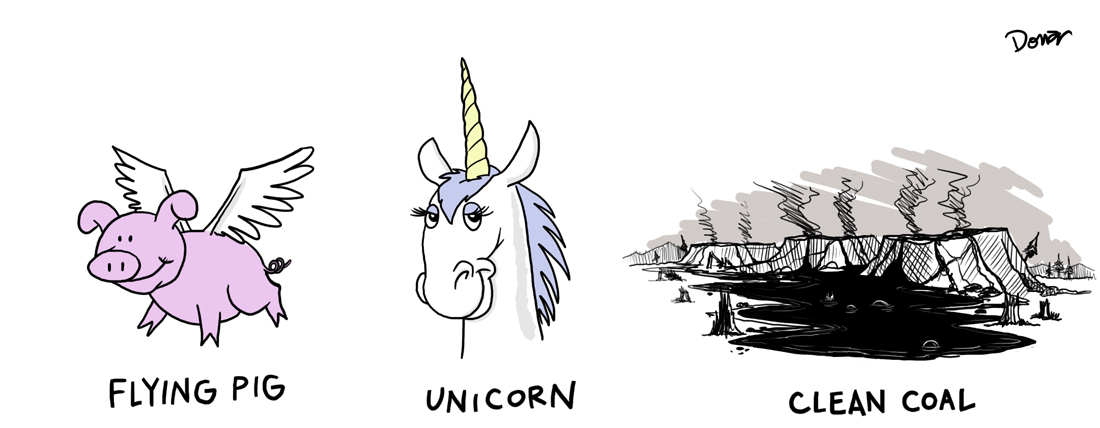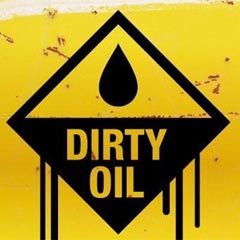 Repower America, wants to share an important piece of news with you.
Repower America, wants to share an important piece of news with you.
The U.S. Environmental Protection Agency (EPA) is planning to limit global warming pollution from big fossil fuel industries like power plants and petroleum refineries. These industries alone account for about 40% of the global warming pollution in the U.S. — making them the two largest sources of emissions.
Here’s where you come in. The EPA is charged with developing rules called New Source Performance Standards (NSPS) that will protect public health, reduce the pollution that causes climate change, and send a signal to polluters that they need to invest in clean energy technologies.
It’s crucial that the EPA sticks to its schedule and develops strong rules. Between now and March 18, the EPA is accepting comments on their plans. They will definitely be receiving comments from the coal, gas and oil industries. Make sure they hear from you, too.
These rules are common sense. The EPA was created to understand our impact on our environment and protect the health of our people. An overwhelming majority of scientists are united in their understanding of the effects of global warming pollution and the EPA is charged with developing rules based on that science. Yet strong special interest groups are working to derail that process.
The EPA needs to hear that you support their efforts to limit global warming pollution from these industries. That’s why you need to encourage the EPA to issue strong New Source Performance Standards without delay.
The science is clear: Climate change is happening. Unfortunately, big polluters will make big profits if they mislead the American public about that fact. RePower America needs you to counteract and counterbalance their money and their voice by sending a comment to the EPA today.
Fill out the form by clicking here, and RePower America will deliver your comment to the EPA before the March 18 deadline:
 In December of 2008 (interestingly the same month as the
In December of 2008 (interestingly the same month as the  The Senate is about to hear legislation pertaining to coal ash waste regulation. There is an amendment proposed to slash EPA’s funding so that they cannot enforce safeguards at coal ash waste landfills. The following is a message from our friends with Environmental Integrity Project. Please take a few moments to contact your senator and let them know you want enforcement of regulations on these very hazardous and dangerous waste sites.
The Senate is about to hear legislation pertaining to coal ash waste regulation. There is an amendment proposed to slash EPA’s funding so that they cannot enforce safeguards at coal ash waste landfills. The following is a message from our friends with Environmental Integrity Project. Please take a few moments to contact your senator and let them know you want enforcement of regulations on these very hazardous and dangerous waste sites.

 And we all know how easy it can be for an oil spill to occur. (
And we all know how easy it can be for an oil spill to occur. (



 Tar sands oil makes conventional oil look clean by comparison, as it produces 3.2-4.5 times more the carbon footprint than conventional fuel. If that weren’t bad enough cleaner fuels such as natural gas, which otherwise might be used to generate electricity, are wasted in the process of creating more dirty energy from tar sands. Tar sands oil is a type of bitumen deposited in a semi solid form whose extraction is an extremely energy intensive project. For every third barrel of oil extracted one has effectively been consumed by the process. The process of tar sands oil extraction has left vast tracts of land barren with little vegetation as it is strip mined; while only 10%, of what is excavated, is oil. While some water is recyclable, the remaining toxic water is diverted to the euphemistically named “tailing ponds”. There are 2.5-4 barrels of water dumped into these toxic lakes for every barrel of oil extracted. These toxic “ponds” are actually very large; some are even visible from space.
Tar sands oil makes conventional oil look clean by comparison, as it produces 3.2-4.5 times more the carbon footprint than conventional fuel. If that weren’t bad enough cleaner fuels such as natural gas, which otherwise might be used to generate electricity, are wasted in the process of creating more dirty energy from tar sands. Tar sands oil is a type of bitumen deposited in a semi solid form whose extraction is an extremely energy intensive project. For every third barrel of oil extracted one has effectively been consumed by the process. The process of tar sands oil extraction has left vast tracts of land barren with little vegetation as it is strip mined; while only 10%, of what is excavated, is oil. While some water is recyclable, the remaining toxic water is diverted to the euphemistically named “tailing ponds”. There are 2.5-4 barrels of water dumped into these toxic lakes for every barrel of oil extracted. These toxic “ponds” are actually very large; some are even visible from space.

